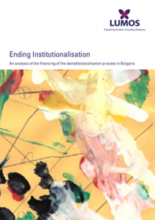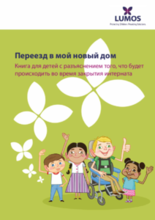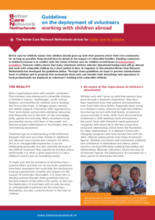Displaying 441 - 450 of 713
This study tested the capacity to perceive visual expressions of emotion, and to use those expressions as guides to social decisions, in three groups of 8- to 10-year-old Romanian children: children abandoned to institutions then randomly assigned to remain in ‘care as usual’ (institutional care); children abandoned to institutions then randomly assigned to a foster care intervention; and community children who had never been institutionalized.
This study has, through an immense literature review analysis explored: the role of OVC care institutions; policy environment of care and protection of OVCs; care of OVCs in institutional care in both South Africa and Botswana; and the experiences of OVCs in care institutions.
This research report analyzes the contributing factors in children and youth’s ability to be placed in care alongside siblings, as well as how caseworkers view sibling placements in Australia’s child welfare system.
According to this report from Lumos, in 2010 there were more than 6,700 children living in institutions in Bulgaria.
The aim of this book is to explain to children what to expect during the time the institution in which they reside is closing.
This interpretive study examines the experiences of 54 Ethiopian emerging adults who had aged out of institutional care facilities. Findings are derived from interviews and focus groups in which questions and activities focused on the challenges faced by participants and the supports they relied on throughout the transition process.
The present study aimed to evaluate and discuss the appropriateness of institutions caring for Orphans and Vulnerable Children (OVCs) in the face of HIV/AIDS through a systematic literature review.
Целью этой книги является объяснить детям то, что их ожидает во время закрытия интерната.
The present study, through an extensive review of literature has explored and reconceptualised institutional care and considered the dynamics of institutionalization. The study also examines the effects and impacts of institutionalization on OVCs in South Africa, such as educational attainment, socialization and psychosocial impacts.
Through these guidelines BCN Netherlands hopes to prevent unintentional harm to children and to promote that exclusively those who can transfer their knowledge and experience to local professionals are deployed as volunteers working with vulnerable children.








